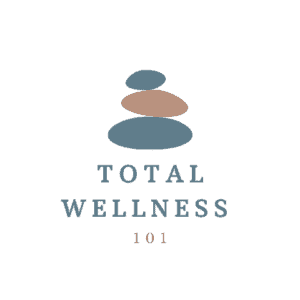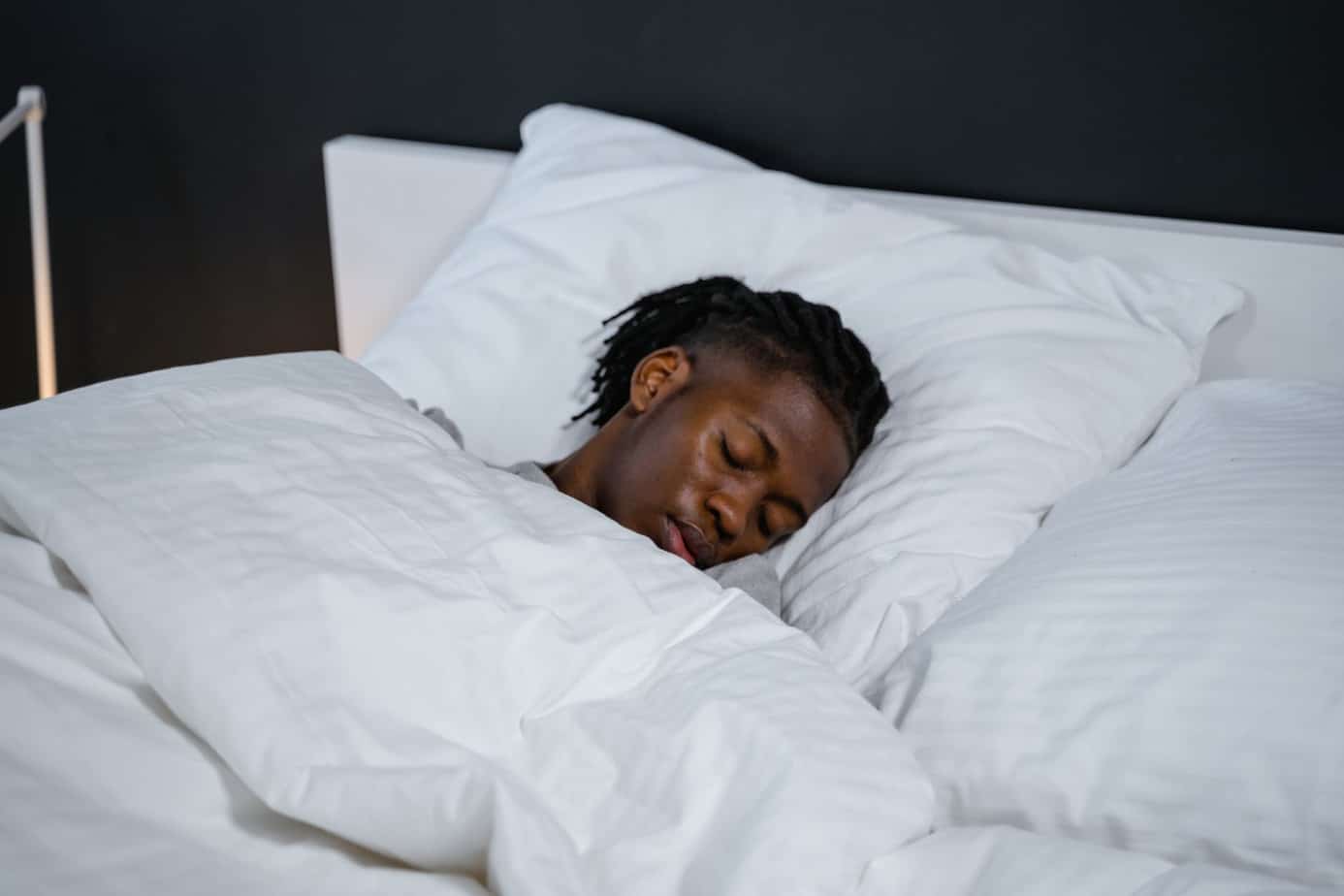Everyone knows how important sleep is but most aren’t willing to put in the work to get good sleep. If you’re waking up feeling exhausted, it’s likely you are not getting enough deep sleep. This will surely affect your entire day and lead to more problems in the future. Bad quality sleep is even linked to conditions such as Alzheimer’s, heart disease, diabetes, and depression. It may be more important to increase deep sleep than you think. Here we will discuss what deep sleep even is, why it’s important, and what we can do to increase it.
What Is Deep Sleep?
Your sleep occurs in 4 stages throughout the night. You begin with lighter non-REM stages of sleep and eventually progress to deep sleep at stages 3 and 4. Deep sleep is also known as slow wave sleep as your brain waves become delta waves. This makes it very difficult to be awakened during this stage. If you do wake up in this stage you will be groggy and tired. REM (rapid eye movement) sleep is another form of deep sleep. REM begins in stage 4 and this is when your brain becomes more active and you experience dreams and consolidate memories. These deep stages of sleep are the most important for your overall rejuvenation. You cycle through these stages about every 90 minutes throughout the night so this cycle will ideally occur various times.
Benefits of Deep Sleep
The deep stages of sleep are when you experience the most benefits. This is when your body repairs itself and strengthens your immune system. These stages are also important for short and long-term learning and memory which is why it is so important for students to sleep enough. During deep sleep, your pituitary gland will also secrete growth hormones for your body’s development. This is why it is so important for children to sleep well. Athletes benefit from this hormone production as well since they are constantly breaking down their bodies and they need the deep sleep to repair and grow back stronger. Deep sleep is also involved in energy and cell restoration throughout your entire body. Overall, deep sleep is how your body rests and recovers and you wouldn’t last long without it.
How Much Do You Need?
Adults should be getting about 1.5-2.5 hours of deep sleep per night. As you get older you will need less deep sleep. This occurs because there is less growth occurring in your body and brain. For this reason, the elderly can sleep less and wake up earlier without feeling tired unlike a teenager for example. In general, the more deep sleep you can get, the better. And sleeping at least 7-8 hours a night gives you a good chance of achieving proper deep sleep.
However, it is possible that you are giving yourself enough time to sleep but that sleep is restless or inefficient. Some people use sleep trackers to measure it. Though this can give you an idea, the technology is still so new that it is not very accurate. Of course, a sleep study with a doctor would be the most accurate way to analyze your sleep. But, you can generally tell just from the fact that you wake up tired and feel tired throughout the day. So let’s go over some ways to increase deep sleep.
Ways to Increase Deep Sleep
- Consistent sleep schedule: Your body follows a circadian rhythm or 24-hour internal clock so it likes predictability and routines. When you are constantly sleeping and waking up at different times, your body doesn’t know when to start shutting down at night or when to wake up in the morning. This leads to restlessness at night and poorer sleep.
- Avoid caffeine and alcohol: Caffeine is a stimulant which inhibits the body’s ability to recognize when it feels tired. It can stay in the system for up to 7 hours so I would only consume caffeine containing supplements in the morning hours. Alcohol may initially induce sleep but later in the night creates unrestful sleep as your body processes it. Some better drinks for the night are milk or herbal teas such as chamomile.
- Lower the lights: Avoid light as much as possible in the hour before bed, especially blue light from phone, TV, and computer screens. It interferes with your brain’s melatonin production because it tricks it into thinking it is still daytime. You could try some blue light blocking glasses to help and blackout curtains to limit light coming in through the windows in your room.
- Exercise: Getting in a good workout during the day will help you fall asleep faster. However, this may have the opposite effect if you workout right before bed.
- Create a bedtime routine: Doing the same things every night before bed helps your brain know it’s time to sleep. You may choose to take a warm bath, read a book, pray, or stretch just to give a few examples. It is a way to condition your own internal clock.
- Meditation: Some people struggle to fall asleep because of stress or intrusive thoughts at night. Meditation is a great way to clear your mind and get into the present moment before you sleep. There are many guided meditations through apps or on YouTube specifically designed for getting a good night’s sleep. Try them out.
- Don’t “try” to sleep: There is a reason the term “falling asleep” exists. It better describes how it should occur. It is something out of our conscious control. No one can force themselves to sleep or will it into reality. Trying when you are not tired just creates more stress and makes it even less likely to happen. If you are not tired, get up and do something until you are tired and then go back to bed. The only thing you want to focus on is being relaxed in bed and the body will take care of the rest.
- Don’t take naps: Staying awake the whole day will help your body need more sleep when bed time comes and not throw off your circadian rhythm.
- Only use your bed for sleep and sex: Some of the bad habits we fall into are watching tv in bed or studying in bed. We may do this because it’s comfortable. The problem is that this confuses your brain and conditions it to think that when you’re in bed, it is time to study or watch TV, not sleep. You should especially avoid stressful scenarios like working from bed so that stress isn’t subconsciously linked to you being in bed. It’s all about training our brains.
- Get some sun: Sunlight exposure especially in the morning can kick your circadian rhythm into gear and translate to better sleep at nighttime.
- Temperature: Your body prefers to sleep in slightly cooler temperatures around 66 degrees Fahrenheit so cool down the house if you can and use your covers to regulate. Also, taking a warm bath or shower before can relax your muscles and prepare you for sleep.
- Supplementation: ZMA (Zinc/Magnesium) supplements help some to achieve greater rest and recovery and are non-addictive. I included the link to the brand I use. Having enough fiber throughout the day has shown promise as well, especially at dinner. Another tool is Melatonin supplementation but you could start to feel dependent on it to sleep as well if you are not careful.
Conclusion
In short, deep sleep is essential for you to feel your best and live a healthy life. If you are feeling like you are lacking in your deep sleep, try out some or all of these suggestions and you will definitely see some improvement. These suggestions will help the majority of those wanting to increase deep sleep. However, there are of course certain health conditions and medications that can affect your sleep quality as well. In those circumstances it is best to consult with a medical professional and create a plan that works for you. I hope we can all realize how critical it is for us to sleep well and that this information can help.
*As an Amazon Associate I earn from qualifying purchases*
Recent Posts
In the pursuit of professional success, the modern working professional often finds solace in a cup of coffee or energy drink. Caffeine, the world's most widely consumed psychoactive substance, has...
Strategies for Sales Professionals to Reduce Back Pain and Injuries
In the fast-paced world of sales, professionals often find themselves navigating through long hours, client meetings, and constant travel. Amidst the pursuit of closing deals and meeting targets, the...

